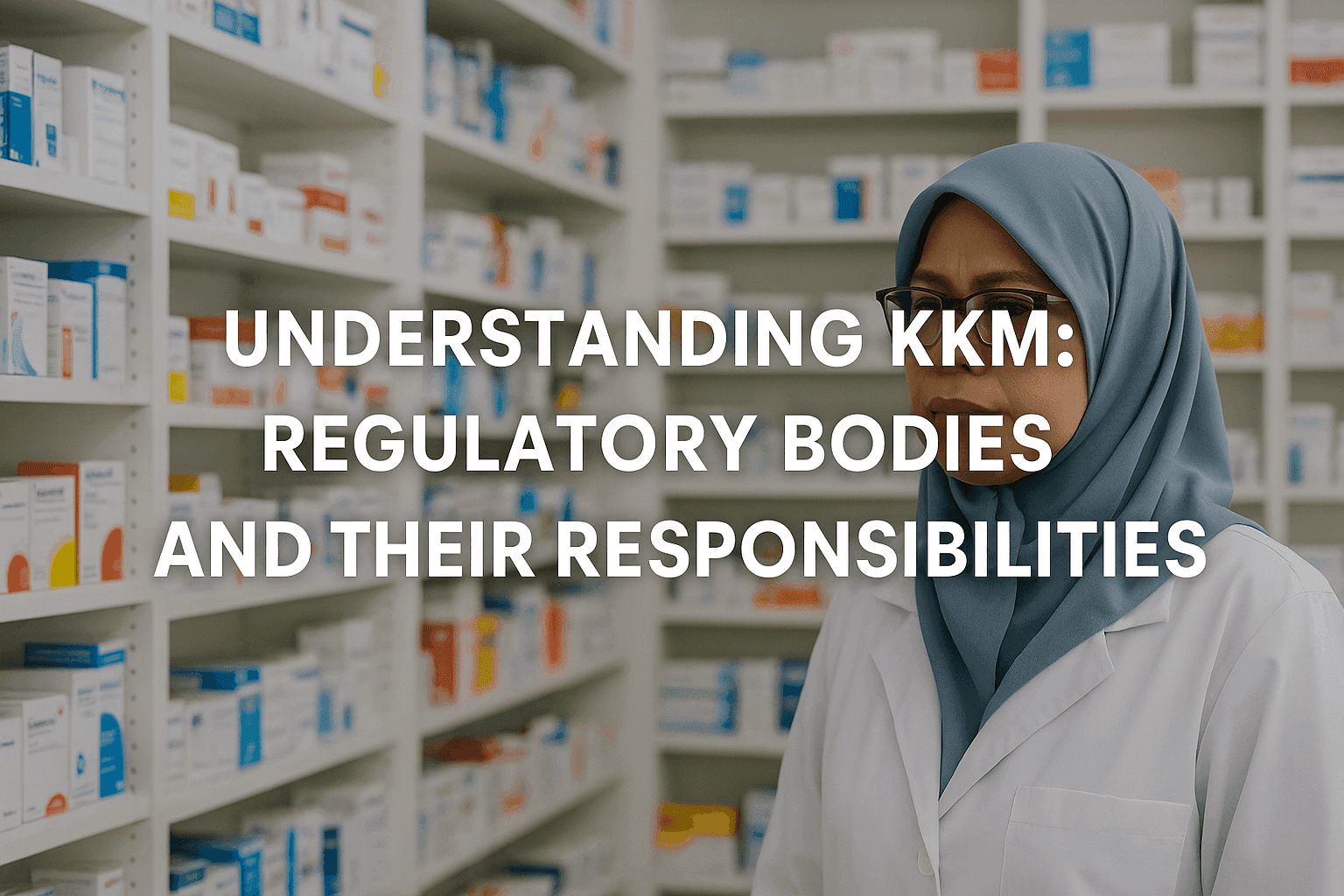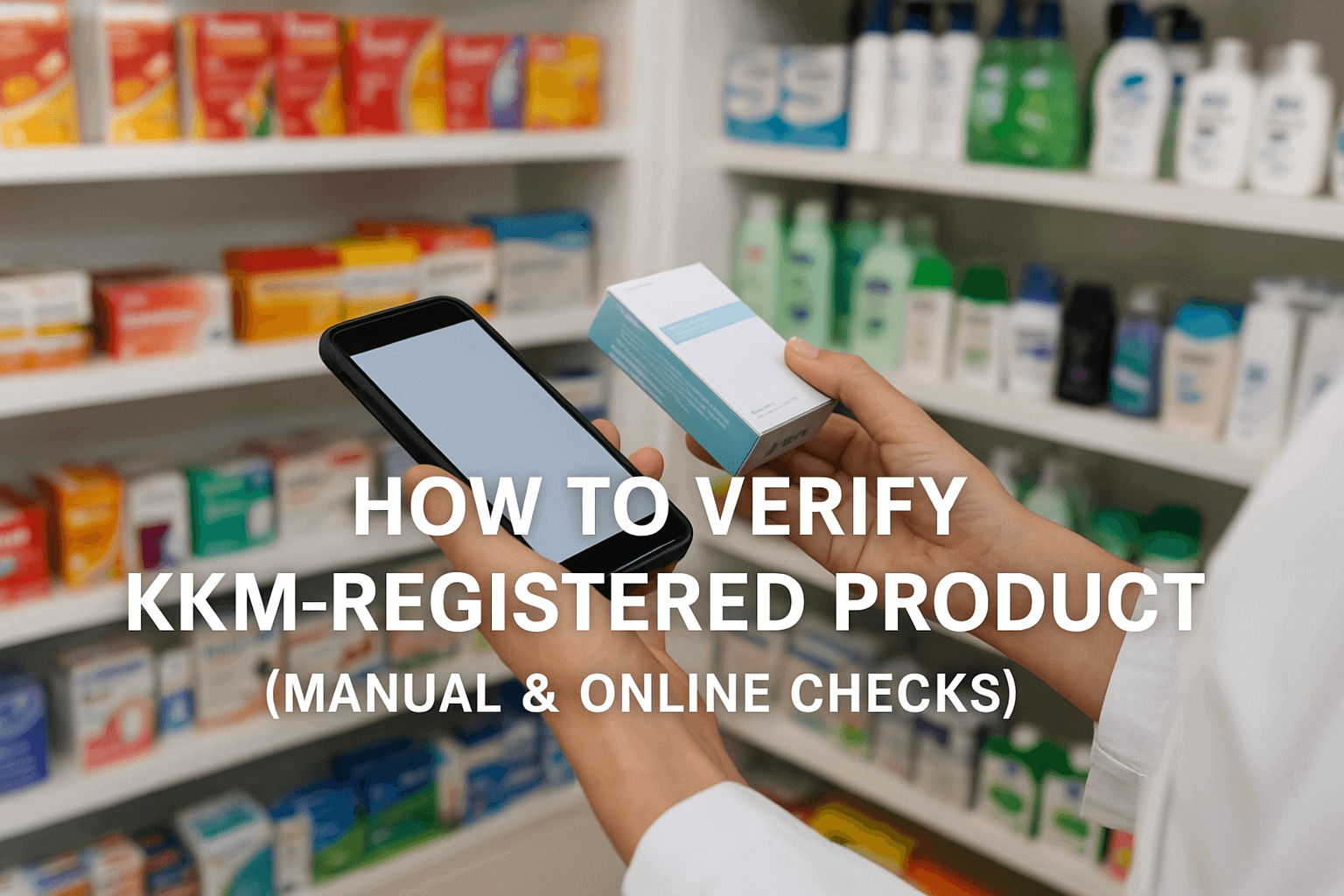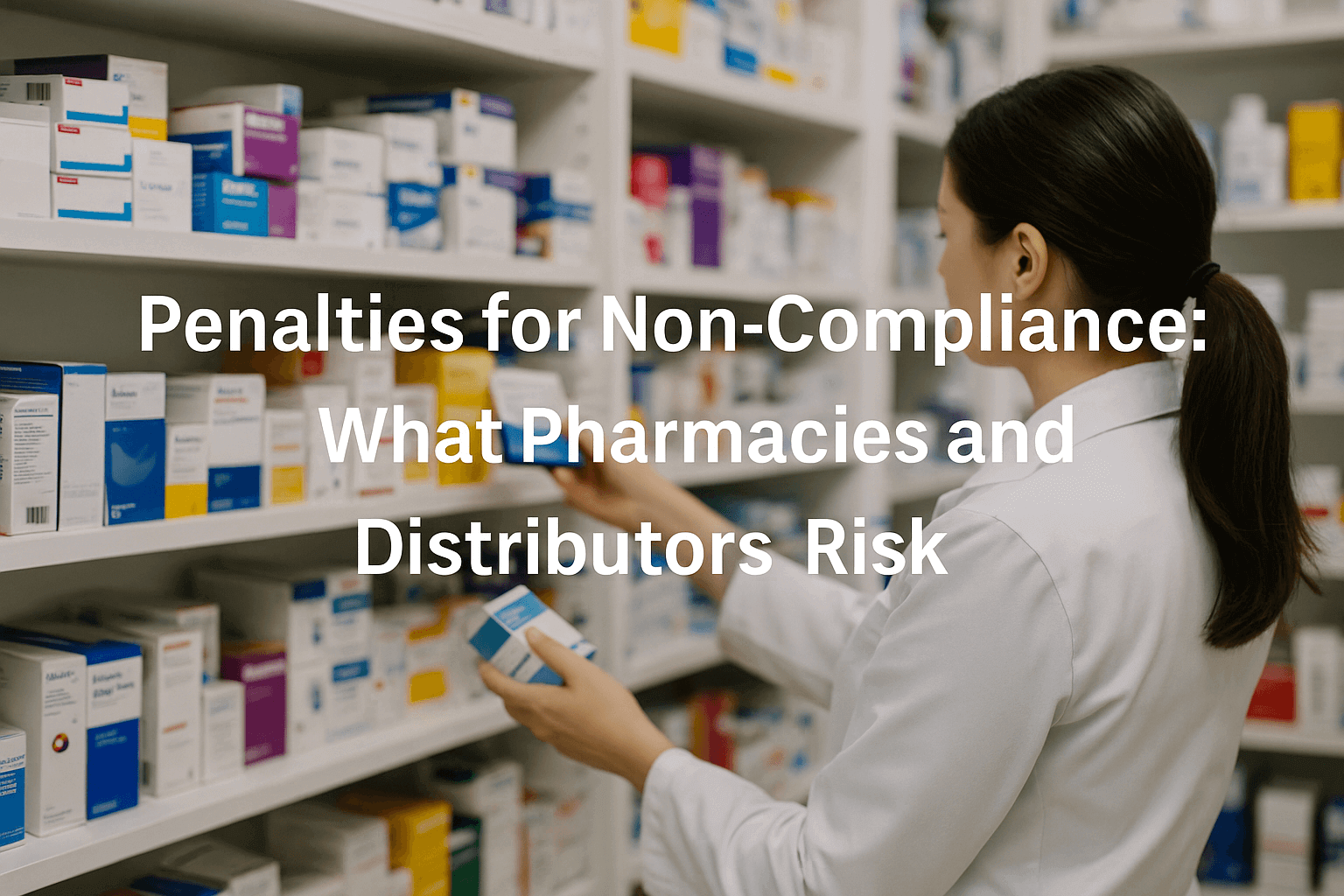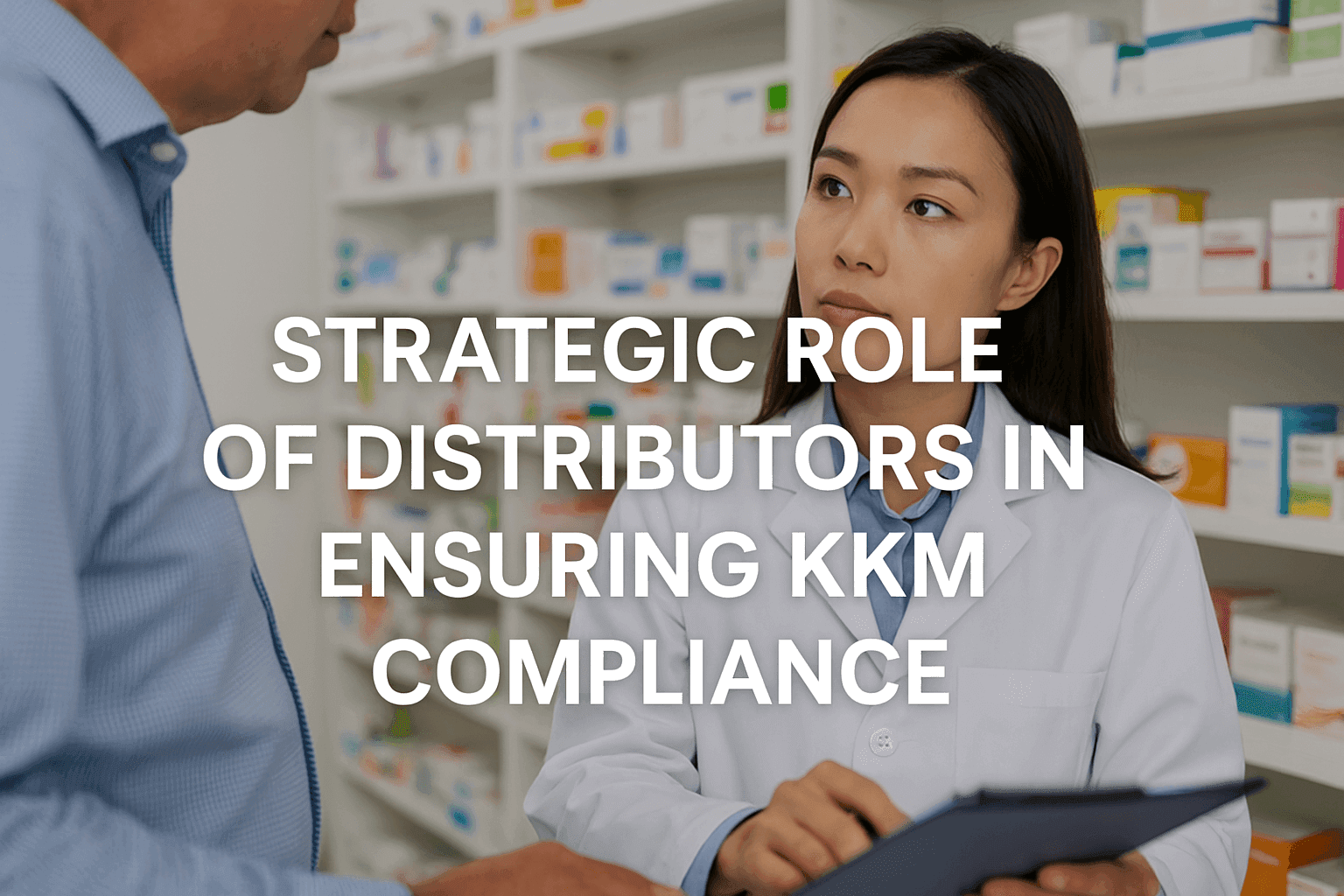
May 18, 2025
In Malaysia’s tightly regulated healthcare landscape, the Ministry of Health (KKM) and its National Pharmaceutical Regulatory Agency (NPRA) serve as the cornerstone of safety and quality assurance for pharmaceuticals, traditional remedies, and cosmetic products. Far from being a bureaucratic formality, securing KKM approval acts as a critical safeguard—a non-negotiable seal of credibility that bridges legal obligations, consumer confidence, and commercial viability.
For businesses operating within Malaysia’s pharmacy distribution networks—whether independent suppliers, regional distributors, or national wholesale providers—adhering to KKM guidelines is a foundational responsibility. The stakes extend beyond mere compliance paperwork. Imagine the risks: distributing unapproved products could compromise patient safety, trigger legal penalties, or irreparably damage a company’s reputation. In a sector where public health is paramount, cutting corners isn’t just unethical—it’s a liability that reverberates across the entire supply chain.
From small neighborhood pharmacies to sprawling wholesale distributors, aligning with KKM standards isn’t solely about avoiding fines or operational disruptions. It’s a commitment to ethical stewardship. Retail chains, for instance, rely on this compliance to assure customers that every product on their shelves meets rigorous safety benchmarks. Meanwhile, pharmacy wholesale distributors play a pivotal role in ensuring that downstream partners—hospitals, clinics, retailers—receive only vetted, reliable stock.
Critically, KKM approval serves as a market differentiator. In an industry where trust is currency, certified products signal reliability, fostering long-term partnerships and customer loyalty. For local distributors competing in a crowded market, this certification isn’t just a badge—it’s a strategic asset that opens doors to collaborations with healthcare institutions and government tenders.
However, the path to compliance requires vigilance. Regulatory frameworks evolve, and staying updated demands proactive engagement with NPRA updates, rigorous staff training, and robust quality control systems. Whether you’re a startup distributor or an established player, integrating these practices into daily operations isn’t optional—it’s how the industry upholds its social contract.
Ultimately, Malaysia’s pharmacy sector thrives when safety and integrity are prioritized. By treating KKM approval as a core value—not a checkbox—businesses don’t just protect their bottom line; they contribute to a healthcare ecosystem where every product sold reflects a commitment to public well-being. After all, in a market where health safety reigns supreme, cutting regulatory corners is a risk no responsible distributor can afford.
Learn more : The Role of Pharmacy Distribution Services in Malaysia’s Healthcare System

When entering Malaysia’s healthcare market, one critical question arises: Who ensures the safety and compliance of medicines, supplements, and cosmetics? The country’s rigorous health product oversight relies on a structured network of regulatory agencies, each playing distinct roles to uphold public safety. Understanding these institutions isn’t just bureaucratic homework—it’s essential for businesses aiming to thrive in this tightly regulated sector.
At the forefront is the National Pharmaceutical Regulatory Agency (NPRA), the primary authority responsible for evaluating and approving pharmaceuticals, dietary supplements, and cosmetic items. Whether it’s a new prescription drug or an over-the-counter herbal remedy, NPRA’s stamp of approval is non-negotiable. Historically, the Biro Pengawalan Farmaseutikal Kebangsaan (BPFK) handled quality control and compliance checks, but this entity has since merged with NPRA, streamlining processes while maintaining strict standards.
Overseeing the broader landscape is the Ministry of Health Malaysia (MOH), which shapes national health policies and enforces regulations. Think of MOH as the umbrella organization ensuring all agencies align with Malaysia’s public health goals. Together, these bodies operate under the Control of Drugs and Cosmetics Regulations 1984—a legal framework mandating that every therapeutic product, from imported skincare items to locally produced vitamins, secures NPRA clearance before hitting shelves.
For distributors and brands, navigating this system requires precision. Are you launching a line of “kosmetik lulus KKM” products or partnering with pharmacy wholesale distributors? Missteps in compliance can delay launches or trigger penalties. For example, even seemingly straightforward categories like herbal supplements demand thorough documentation and adherence to NPRA guidelines.
Bottom line: Success in Malaysia’s health market hinges on recognizing which agency governs which process. Whether you’re a retailer expanding into Southeast Asia or a manufacturer eyeing collaborations, clarity on NPRA’s requirements and MOH’s overarching policies isn’t just advisable—it’s non-negotiable. After all, in a sector where trust is everything, cutting corners isn’t an option.

Confused about which items require authorization from Malaysia’s National Pharmaceutical Regulatory Agency (NPRA/KKM)? Understanding compliance requirements is non-negotiable in an industry where consumer safety takes precedence. Below, we break down product categories that mandate formal registration or notification under KKM guidelines.
Pharmaceuticals top the list, covering everything from prescription-only scheduled poisons to over-the-counter (OTC) medications. These undergo rigorous evaluation to verify safety and efficacy before hitting shelves.
Herbal preparations, Traditional Chinese Medicine (TCM), and Ayurvedic products fall under this umbrella. Despite their natural origins, they’re subject to scrutiny to ensure standardized quality and accurate labeling.
Health supplements—think vitamins, probiotics, or immunity blends—must avoid disease-treatment claims. Their role? To “support” or “maintain” health functions without crossing into medicinal territory.
Functional foods occupy a unique space, often blurring lines between nutrition and health benefits. Products making ambiguous claims like “supports heart health” may face stricter documentation demands.
Cosmetics, which alter appearance without therapeutic intent, generally need notification rather than full registration. However, formulations with active ingredients (e.g., anti-aging serums or acne-fighting creams) risk being classified as drugs—triggering stricter protocols.
The line between cosmetics and therapeutic products remains notoriously fuzzy. Take skin brightening creams containing potent actives like glutathione: these could shift into the “drug” category, demanding full registration. For pharmacy owners and distributors in Malaysia, missteps here can mean legal headaches or product recalls.
Whether you’re an importer, retailer, or independent distributor, aligning stock with KHM’s framework is non-optional. Each category demands tailored documentation, from clinical evidence for pharmaceuticals to ingredient transparency in supplements. Proactive claim verification and precise labeling aren’t just best practices—they’re shields against regulatory penalties.
Bottom line? In a market that prioritizes safety, cutting corners with unapproved products isn’t just risky—it’s unsustainable. Stay informed, audit your inventory regularly, and when in doubt, consult KKM’s latest guidelines before stocking new items.
Learn more : Overview of Natural Product Registration in Malaysia

In Malaysia’s tightly regulated healthcare market, bringing a product to retail shelves demands meticulous adherence to the KKM (Ministry of Health) approval framework. Whether it’s a pharmaceutical item, dietary supplement, or cosmetic, understanding the step-by-step pathway ensures compliance while accelerating time-to-market. Here’s a breakdown of how businesses navigate this critical journey.
Step 1: Product Classification
The process begins with determining the product’s regulatory category. Companies must submit a classification request to Malaysia’s National Pharmaceutical Regulatory Agency (NPRA). This step clarifies whether the item falls under pharmaceuticals, supplements, or cosmetics—a distinction that dictates subsequent requirements.
Step 2: Compiling Documentation
Next comes assembling a comprehensive dossier. This technical package includes formulation specifics, Good Manufacturing Practice (GMP) certifications, stability testing results, and safety assessments. For pharmaceuticals, robust clinical data is essential, while cosmetics may prioritize ingredient compatibility. Missing or inconsistent details here often lead to delays, underscoring the need for precision.
Step 3: Digital Submission via Quest3+
All applications are filed through NPRA’s Quest3+ online portal. This phase require businesses to upload digitized documents, pay fees, and track progress in real-time. Errors in submission can reset timelines, making familiarity with the platform’s interface a practical advantage.
Step 4: Rigorous Evaluation
NPRA reviewers then scrutinize the product’s quality, safety, and efficacy. For pharmaceuticals, this stage may involve lab testing or expert panel consultations. Cosmetics, governed by a notification system, typically face lighter scrutiny but still demand full ingredient transparency.
Step 5: Approval & Market Entry
Successful applications receive either a MAL number (for pharmaceuticals) or a notification ID (cosmetics). These credentials permit legal sales in Malaysia. Processing times vary widely: drug approvals can stretch 6–12 months, while cosmetics often clear within 1–2 weeks post-submission.
Local distributors, such as PriooCare, frequently collaborate with regulatory consultants to streamline documentation and avoid bottlenecks. Clean, compliant submissions not only accelerate approvals but also position wholesalers as reliable partners in a safety-first market. For pharmacies and retailers, aligning with experts who grasp NPRA’s evolving standards can mean the difference between stagnation and shelf-ready success.
By mastering these steps—and leveraging strategic partnerships—businesses can transform regulatory hurdles into competitive advantages in Malaysia’s health-conscious marketplace.
Learn more : NPRA Drug Registration Guidance Document

Securing KKM approval for your health or cosmetic product might feel like crossing the finish line—but in reality, it’s just the starting block. Regulatory compliance evolves into an ongoing partnership between manufacturers, distributors, and retailers, with each player accountable for maintaining standards in a safety-driven market.
Products entering the Malaysian market must immediately address three non-negotiable mandates. First, every item requires clear visibility of its MAL registration number (or notification ID for cosmetics)—a detail that’s scrutinized during routine inspections. Second, labels and packaging must align precisely with NPRA’s strict guidelines, including font sizes, ingredient lists, and health claims. Third, adherence to Good Manufacturing Practices (GMP) and Hazard Analysis Critical Control Point (HACCP) frameworks becomes non-negotiable, ensuring production environments meet hygiene and safety benchmarks.
While manufacturers lay the groundwork, distributors and retailers inherit critical responsibilities. Maintaining airtight product traceability systems—documenting batch numbers, storage conditions, and distribution pathways—isn’t optional. These records become vital during surprise MOH audits, where gaps can trigger product recalls or fines. Even minor oversights, like smudged expiry dates or loosely sealed packaging, risk inventory seizures that tarnish brand reputations.
Forward-thinking pharmacy distributors often step beyond logistics to act as compliance gatekeepers. Prior to shelf placement, rigorous quality checks occur:
Cross-verifying label claims against NPRA submissions
Inspecting tamper-proof seals and moisture barriers
Confirming expiration dates are embossed, not stickered
This multilayered scrutiny ensures KKM compliance isn’t a one-time manufacturer checkbox but a living standard upheld throughout the product lifecycle.
In markets prioritizing consumer safety, cutting corners post-approval jeopardizes more than inventory—it risks legal penalties and eroded trust. While regulatory frameworks set the baseline, proactive partnerships with detail-oriented distributors often determine long-term market success. After all, in healthcare, the difference between compliance and negligence isn’t just about rules—it’s about credibility.

In an industry where consumer trust hinges on regulatory compliance, verifying a product’s KKM (Kementerian Kesihatan Malaysia) approval status isn’t just a best practice—it’s a non-negotiable step for pharmacies committed to safety. Before adding any item to your shelves, confirming its legitimacy through official channels ensures alignment with Malaysia’s stringent health standards.
The National Pharmaceutical Regulatory Agency (NPRA) simplifies compliance with user-friendly resources designed for accuracy. Start by visiting the NPRA Product Search Portal (https://www.npra.gov.my), a centralized database updated in real-time. For teams on the go, the portal’s mobile-optimized interface allows instant verification during supplier meetings or warehouse audits. Cross-checking the product’s MAL registration number is equally critical. This unique identifier—formatted as “MALxxxxxxN”—must correspond precisely to the manufacturer and product category listed in NPRA records.
Packaging tells a story. Legitimate KKM-approved items display the MAL number prominently, often near batch codes or expiry dates. For cosmetics, look for the “kkm check kosmetik lulus” notification, a clear sign of compliance. Train staff to recognize these markers during inventory inspections, reinforcing due diligence at every touchpoint.
Vigilance prevents costly oversights. Reject products lacking an MAL number outright, as this omission signals unauthorized status. Expired registrations—easily overlooked during rushed orders—are another red flag. Similarly, labels boasting “KKM-approved” claims without verifiable credentials demand scrutiny. Implementing routine audits minimizes the risk of stocking non-compliant items.
Equip your team with the knowledge to enforce compliance protocols. Regular workshops on using NPRA tools and identifying counterfeit indicators create a culture of accountability. Encourage collaboration between frontline staff and warehouse managers to ensure consistency across all locations.
Ultimately, rigorous KKM verification safeguards your pharmacy’s reputation and operational license. In a market where safety reigns supreme, cutting corners simply isn’t an option. By integrating these practices into daily workflows, your business not only meets regulations but also earns the trust of health-conscious consumers.
Learn more : NPRA Product Status Mobile App

In today’s market, where consumers prioritize safety and transparency, pharmacies face a critical question: Are unregistered products worth the gamble? The short answer? Absolutely not—and the repercussions extend far beyond temporary setbacks.
Regulatory bodies like Malaysia’s Ministry of Health (MOH) enforce strict penalties to protect public health. For individuals, fines can soar to RM50,000, while companies risk penalties up to RM100,000—a significant financial blow for any business. But the risks don’t end there. During routine MOH inspections, non-compliant products face immediate seizure, disrupting supply chains and inventory without warning.
Repeat violations amplify the stakes. Pharmacies risk losing their operating licenses entirely, effectively halting business operations. Even worse, the MOH publicly names non-compliant entities in enforcement press releases, tarnishing reputations built over years. Once blacklisted, rebuilding trust with consumers and retail partners becomes an uphill battle.
Recent enforcement trends underscore this reality. In 2023, authorities penalized multiple skincare and supplement distributors for sidestepping mandatory KKM registration processes. These cases serve as stark reminders: shortcuts in compliance inevitably lead to long-term consequences.
For distributor networks, robust quality assurance systems aren’t just optional—they’re survival tools. A single oversight can trigger product recalls, strain retailer relationships, and alienate safety-conscious customers. In an era where social media amplifies every misstep, the fallout from selling unapproved items can spiral into irreversible brand damage.
Pharmacies must prioritize rigorous supplier vetting, real-time regulatory updates, and staff training to mitigate risks. Partnering with fully licensed manufacturers and documenting every compliance step creates a defensible audit trail during inspections.
While unregistered products might promise quick profits, the hidden costs—financial penalties, operational disruptions, reputational harm—far outweigh any temporary gains. In a market that equates safety with credibility, compliance isn’t just a legal obligation; it’s a competitive advantage. Is your pharmacy prepared to bet its future on cutting corners?

In Malaysia’s tightly regulated pharmaceutical landscape, distributors play a pivotal role as custodians of compliance within the KKM (Ministry of Health Malaysia) ecosystem. Far from being mere logistics providers, these entities act as critical checkpoints to ensure every product aligns with national health safety standards. Their operational framework combines rigorous oversight with proactive support, creating a safety net for both suppliers and retailers.
At the core of their responsibilities lies a multi-layered approval process. Before any product enters storage facilities, distributors meticulously evaluate its KKM authorization status. This involves cross-checking registrations, verifying labeling accuracy, and confirming formulation compliance. Beyond initial screenings, they maintain transparent communication with retail partners by supplying up-to-date documentation – a practice that minimizes legal risks while fostering trust in the supply chain.
What truly distinguishes progressive distributors, however, is their commitment to end-to-end regulatory partnerships. Rather than limiting their role to storage and transportation, leading firms integrate compliance management into every operational tier. For instance, many implement structured protocols for introducing novel products, conduct routine inventory audits to spot labeling discrepancies, and invest in continuous employee education programs focused on regulatory updates.
This comprehensive strategy delivers measurable advantages. Pharmacies partnering with full-service distributors benefit from reduced compliance burdens, allowing them to focus on patient care rather than bureaucratic hurdles. Simultaneously, distributors solidify their market position by demonstrating expertise that transcends basic warehousing services.
For Malaysian pharmacies, selecting a distributor with robust compliance capabilities isn’t just practical—it’s strategic. In a sector where public health trust directly impacts business viability, aligning with partners who prioritize regulatory excellence helps safeguard reputation while ensuring seamless market access. By bridging regulatory requirements with commercial needs, forward-thinking distributors are redefining their value proposition in an increasingly safety-conscious industry.
Learn more : Cost-Effective Strategies for Pharmacy Distribution in Malaysia

Ever wondered why some health products face roadblocks when seeking KKM (Ministry of Health Malaysia) approval? In a market where consumers prioritize safety and compliance, distributors and manufacturers can’t afford missteps during the registration process. Let’s explore the common hurdles—and actionable solutions—for navigating Malaysia’s strict regulatory landscape.
One major challenge stems from incomplete or error-prone application packages. Missing technical data, inconsistent ingredient lists, or poorly organized dossiers frequently trigger delays. Another issue arises from incorrect product categorization—for instance, classifying a functional food as a pharmaceutical item. This mismatch often leads to immediate rejection, forcing brands to restart the lengthy submission process.
Imported goods face additional scrutiny due to gaps in supporting documentation. Authorities may request extra validation for foreign clinical studies, manufacturing licenses, or quality control protocols not aligned with Malaysian standards. Even minor oversights—like outdated safety certificates or incomplete labeling translations—can derail timelines.
To avoid these setbacks, consider partnering with regulatory consultants who specialize in KKM guidelines. Their expertise helps streamline dossier preparation and ensures proper classification from the outset. Internally, companies should implement standardized operating procedures (SOPs) with clear checklists for document verification, reducing human error during submissions.
Proper resource allocation is equally critical. Rushing reviews or cutting corners to meet tight deadlines often backfires. Instead, budget sufficient time and funds for thorough quality checks and iterative revisions. For borderline items like nutraceuticals or products with dual-purpose claims (e.g., cosmetics with therapeutic benefits), anticipate extended evaluation periods due to evolving regulations.
Beyond these core strategies, continuous monitoring of policy updates is non-negotiable. KKM frequently refines guidelines—sometimes annually—particularly for high-risk categories. Subscribing to regulatory newsletters or attending industry workshops helps brands adapt quickly. Remember: Proactive compliance isn’t just about avoiding penalties; it’s about building consumer trust in a market that values transparency above all.
By addressing documentation gaps, leveraging expert support, and staying informed, businesses can transform regulatory hurdles into competitive advantages. After all, in Malaysia’s health-conscious ecosystem, thorough preparation isn’t just recommended—it’s essential for long-term success.
In Malaysia’s strictly controlled pharmaceutical sector, KKM certification serves as more than just a regulatory checkbox—it’s the bedrock of operational legitimacy. For wholesalers, pharmacy networks, and independent distributors, aligning with KKM standards isn’t merely about avoiding penalties. It’s about cementing your reputation as a trustworthy partner in a market where patient safety dictates purchasing decisions.
Operating without KKM approval risks more than fines or product recalls. It jeopardizes consumer confidence, a currency far harder to regain once lost. Whether you’re sourcing inventory, managing logistics, or negotiating shelf placements, every step must prioritize compliance. This diligence not only shields your business from legal pitfalls but positions your brand as a reliable ally to pharmacies and healthcare providers nationwide.
The stakes are clear: shortcuts in regulatory adherence can derail even the most promising ventures. Malaysian consumers and healthcare professionals increasingly scrutinize product origins, favoring distributors who transparently uphold safety protocols. By embedding KKM compliance into your operational DNA, you transform a mandatory requirement into a strategic differentiator—one that fosters loyalty and unlocks doors to long-term partnerships.
Struggling to navigate KKM’s product registration maze or source verified-approved inventory? PriooCare offers tailored distribution solutions designed for Malaysia’s unique regulatory landscape. Our end-to-end services—from documentation support to compliant merchandising strategies—ensure your products meet KKM standards while maximizing shelf visibility.
Collaborate with us to:
Accelerate approval timelines with error-free submissions
Access a curated network of KKM-certified suppliers
Deploy compliant marketing campaigns that resonate with pharmacies
Don’t let regulatory complexity stifle your growth. By prioritizing KKM alignment, you safeguard your brand’s integrity while tapping into Malaysia’s thriving pharmacy networks. Let’s make KKM compliance work for your advantage—because in healthcare, trust isn’t earned overnight, but it can be lost in seconds.
Q1: What is KKM, and why is its approval important for healthcare products in Malaysia?
Answer:
KKM (Kementerian Kesihatan Malaysia) is the Ministry of Health, responsible for ensuring all health-related products—pharmaceuticals, supplements, and cosmetics—meet strict safety and quality standards. Its approval certifies that products are legally registered, safe for consumers, and compliant with Malaysian health regulations.
Q2: What is the role of NPRA under KKM?
Answer:
The National Pharmaceutical Regulatory Agency (NPRA) is a division under KKM that evaluates, approves, and monitors health products. It oversees the registration of medicines, supplements, and cosmetics, ensuring every product undergoes thorough safety, efficacy, and quality assessment before market entry.
Q3: Which products must be registered or notified with KKM before sale?
Answer:
Products requiring KKM registration include pharmaceuticals, traditional medicines, health supplements, and functional foods. Cosmetics and personal care products must be notified through NPRA’s cosmetic notification system. Each type must display valid MAL or NOT numbers on its packaging.
Q4: How can businesses determine whether their products fall under KKM regulation?
Answer:
Businesses must first classify their products—pharmaceutical, supplement, or cosmetic—by submitting a classification request to NPRA. This determines the applicable approval process, required documentation, and compliance obligations under the Control of Drugs and Cosmetics Regulations 1984.
Q5: What is the process to obtain KKM product approval in Malaysia?
Answer:
The process involves five key steps: product classification, documentation preparation, submission via NPRA’s Quest3+ portal, evaluation by NPRA, and final approval with a MAL number (for medicines) or NOT ID (for cosmetics). Approval timeframes vary based on product type and complexity.
Q6: Why must pharmacies and distributors prioritize KKM compliance?
Answer:
Compliance ensures legal operation, consumer safety, and business credibility. Pharmacies and distributors selling unregistered products risk fines, license suspension, or brand damage. Verified KKM approval strengthens trust with consumers and retail partners.
Q7: How can consumers and distributors verify a product’s KKM registration?
Answer:
Verification can be done through the NPRA Product Search Portal at www.npra.gov.my. Users can check MAL or NOT numbers, manufacturer details, and product validity. Legitimate products always display these identifiers clearly on packaging.
Q8: What are the penalties for selling unregistered or fake KKM products?
Answer:
Businesses caught selling non-compliant products face fines up to RM100,000, product seizures, or license revocation. Individuals may be fined up to RM50,000. Repeat offenses can lead to public blacklisting by the Ministry of Health, causing lasting reputational harm.
Q9: What responsibilities do distributors have after KKM approval is granted?
Answer:
Distributors must maintain product traceability, ensure correct labeling, store items under proper conditions, and regularly verify product authenticity. They act as compliance gatekeepers, ensuring every batch remains consistent with approved NPRA documentation.
Q10: How can PriooCare assist businesses with KKM compliance and distribution?
Answer:
PriooCare provides end-to-end support—from preparing registration documents and verifying supplier compliance to managing regulated distribution networks. Their expertise helps brands navigate KKM approval efficiently, maintain compliance, and expand safely within Malaysia’s healthcare market.
Our marketing and sales teams use their strong relationships with the channel to create demand for your product at every stage of its lifecycle.
Demand creation services we offer: